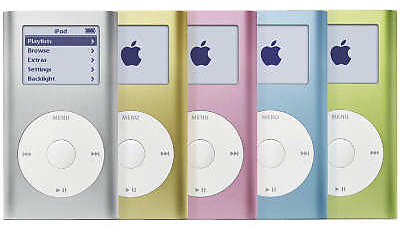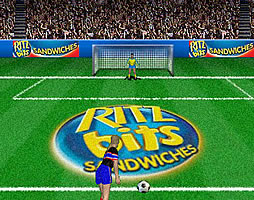Product Placement Picking Up Steam
Submitted by Judith Siers-Poisson on
 Product placement in movies and on television is expected to triple by the end of the decade according to a report issued by PQ Media.
Product placement in movies and on television is expected to triple by the end of the decade according to a report issued by PQ Media.

Submitted by Judith Siers-Poisson on
 Product placement in movies and on television is expected to triple by the end of the decade according to a report issued by PQ Media.
Product placement in movies and on television is expected to triple by the end of the decade according to a report issued by PQ Media.
 One of the marketing success stories in the world of herbal pills is the hype and advertising that has made Tebonin one of the big-time sellers. If you believe the ads, popping a Tebonin pill a day will relieve tinnitus (the ringing sound some people have in their ears), dizziness and even improve mental alertness. The promoters claim the drug, which is based on a patented extract from the ginkgo biloba tree, improves "impaired micro-circulation," reduces "free radicals" and "promotes optimum cell function."
One of the marketing success stories in the world of herbal pills is the hype and advertising that has made Tebonin one of the big-time sellers. If you believe the ads, popping a Tebonin pill a day will relieve tinnitus (the ringing sound some people have in their ears), dizziness and even improve mental alertness. The promoters claim the drug, which is based on a patented extract from the ginkgo biloba tree, improves "impaired micro-circulation," reduces "free radicals" and "promotes optimum cell function."
According to the German manufacturer, Dr. Willmar Schwabe GmbH & Co KG, eight million pills are consumed every day. Schwabe, like so many companies in the herbal supplements sector, trades on its feel-good image. "From Nature, For Health," its website claims. That's the story the company wants you to hear. However, when a small group of Australian doctors and pharmacists, AusPharm Consumer Health Watch, drafted a report raising doubts about the benefits of Tebonin, they discovered a company that was not so warm and fuzzy. Soon after sending a copy of their draft report to the company, they were hit with a writ seeking an injunction that may bury their critical assessment forever.
Submitted by Bob Burton on
GlaxoSmithKline breached the British drug industry's own self-regulatory code of conduct by promoting ropinirole to treat restless legs syndrome before the drug had been approved for that use.
Submitted by Bob Burton on
During August, U.S. McDonald's is teaming up with GM to include a model of the gas-guzzling Hummer in its "Happy Meals." The New York Times notes that McDonald's "appears not to have gotten the message" about rising petrol prices.
Submitted by Diane Farsetta on
Submitted by Jonathan Rosenblum on
For years, a group of fans and antisweatshop advocates has called on the Pittsburgh Pirates to source their souvenirs from factories that ensure fair labor conditions. The Big League response has been something of a greaseball: Major League Baseball (MLB) is "proud of the accomplishments of our licensees [who] provide gainful employment to tens of thousands of people" under "what we understand to be" full compliance with labor laws, wrote Ethan Orlinsky, general counsel MLB Properties (MLBP).
Submitted by Judith Siers-Poisson on

Submitted by Bob Burton on
A survey (pdf) by the Cancer Council of New South Wales has found that 81% of all food being advertised on television in Australia was for junk food. The study, which has been published in Health Promotion International journal, recorded 645 hours of television between 7am and 9pm on both weekdays and weekends in four different locations. It found that 31% of all ads were for food, with fast food and takeaway foods being the most common.
Submitted by Bob Burton on
In March this year Dr. Peter Gleason, a Maryland psychiatrist, was arrested by the FBI at a Long Island train station and later charged for promoting off-label use of Xyrem, a prescription drug manufactured by Jazz Pharmaceuticals. The New York Times reports that federal prosecutors allege that "at hundreds of speeches and seminars where he was rewarded with generous fees, Dr.
Submitted by John Stauber on
Brandweek examines some of the latest corporate greenwashing efforts.
Center for Media and Democracy (CMD)
520 University Ave, Ste 305 • Madison, WI 53703 • (608) 260-9713
CMD is a 501(c)(3) tax-exempt non-profit.
© 1993-2025